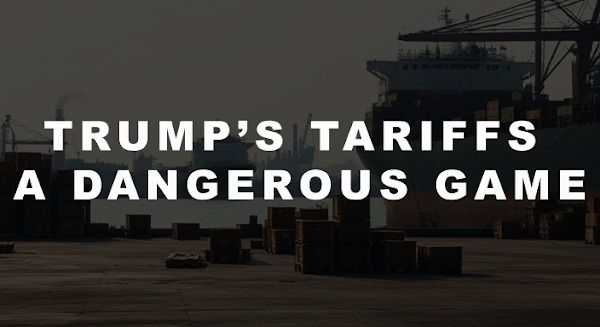The Smoot-Hawley Tariff Act (officially the Tariff Act of 1930) was a U.S. law enacted on June 17, 1930. Sponsored by Senator Reed Smoot (R-UT) and Representative Willis C. Hawley (R-OR), it raised tariffs on thousands of imported goods to historically high levels. While it was initially intended to protect American farmers and industries from foreign competition in the wake of declining agricultural prices, it ended up having far-reaching negative consequences for both the U.S. and the global economy.
1. Context and Motivations
- Agricultural Decline: American farmers had already been struggling throughout the 1920s due to falling crop prices and overproduction. Legislators believed raising tariffs on agricultural imports would help farmers compete and recover.
- Great Depression Onset: The stock market crash of 1929 deepened economic woes, increasing political pressure to protect domestic industries and jobs. Protectionism seemed, at first glance, like a way to bolster American businesses at home.
- Widespread Opposition by Economists: Over 1,000 economists signed an open letter urging President Herbert Hoover to veto the bill, warning that it would stifle international trade and hurt the U.S. economy in the long run.
2. Main Provisions
- Significant Tariff Increases: The Act raised tariffs on thousands of products, including agricultural items and various manufactured goods. In some cases, tariffs rose to levels that effectively priced foreign goods out of the U.S. market.
- Trade Policy Shift: Smoot-Hawley marked a shift away from the relatively more open trade policy of the 1920s, setting the stage for retaliatory measures from other nations.
3. Immediate Effects
- Retaliatory Tariffs: Countries such as Canada, France, and others responded with tariffs on U.S. exports. As a result, American farmers and manufacturers found it harder to sell products abroad.
- Decline in Global Trade: The Act contributed to a rapid decline in international trade. Although the Great Depression had multiple causes, the sharp rise in tariffs and subsequent retaliation exacerbated the global economic downturn.
- Economic Isolation: Higher tariffs diminished opportunities for global cooperation and trade, reinforcing a trend toward economic isolation among major industrialized nations during the early 1930s.
4. Longer-Term Consequences
- Deepening the Great Depression: While not the sole cause of the Great Depression’s severity, Smoot-Hawley is widely regarded by historians and economists as intensifying the crisis by shrinking world trade and aggravating financial instability.
- Shift in Trade Policy: Over time, the negative experience with protectionist policies led to a major shift in U.S. trade policy. By the mid-1930s, President Franklin D. Roosevelt’s administration began negotiating reciprocal trade agreements to lower tariffs and encourage international commerce.
- Lessons for Policy: Smoot-Hawley remains a textbook cautionary tale about protectionism. Economists and policymakers often cite it as an example of how raising trade barriers can cause significant economic harm, especially during periods of global financial stress.
5. Legacy
- Changed View of Tariffs: The negative repercussions of Smoot-Hawley influenced future generations of leaders to seek more cooperative trade policies, culminating in multilateral trade arrangements after World War II (e.g., the General Agreement on Tariffs and Trade, later the World Trade Organization).
- Cautionary Example: Discussions about protectionist measures often reference the Smoot-Hawley Act to highlight the dangers of triggering trade wars and isolating domestic industries from global markets.
In Summary
The Smoot-Hawley Tariff Act of 1930 was a protectionist measure born out of efforts to shield U.S. farmers and industries during an economic downturn. Instead, it provoked retaliatory tariffs from trading partners, contributed to a collapse in international trade, and worsened the global depression of the 1930s. Its legacy endures as a strong argument against aggressive tariff hikes and isolationist trade policies, especially during economic crises.


No comments:
Post a Comment